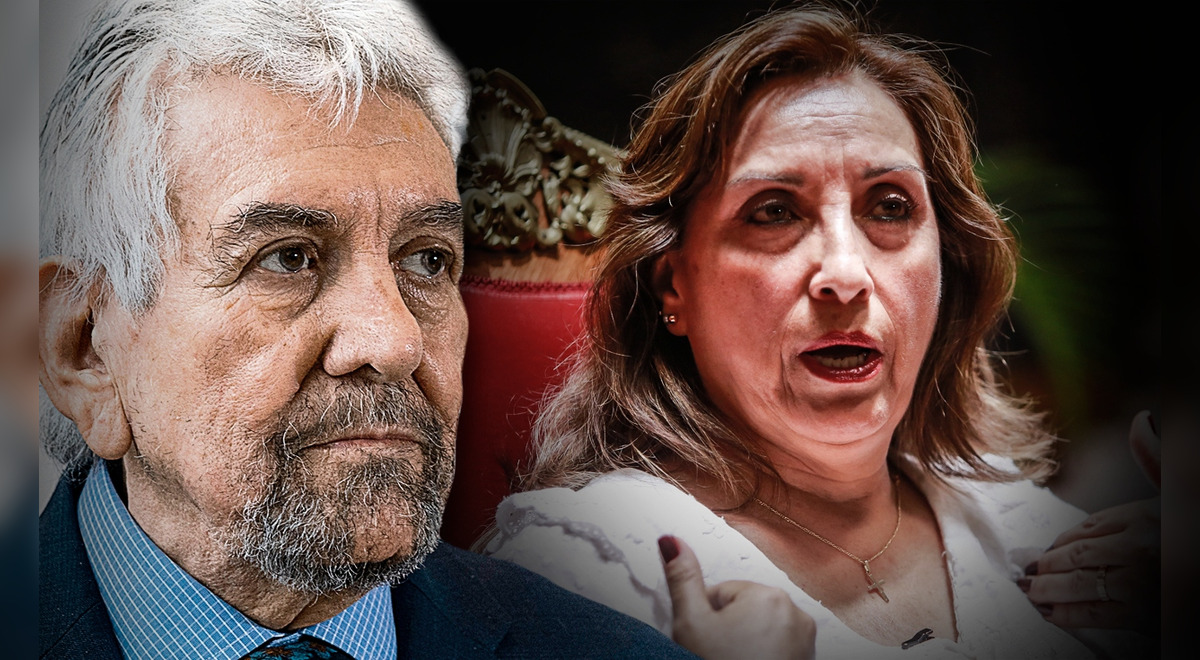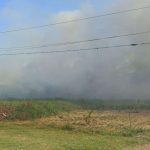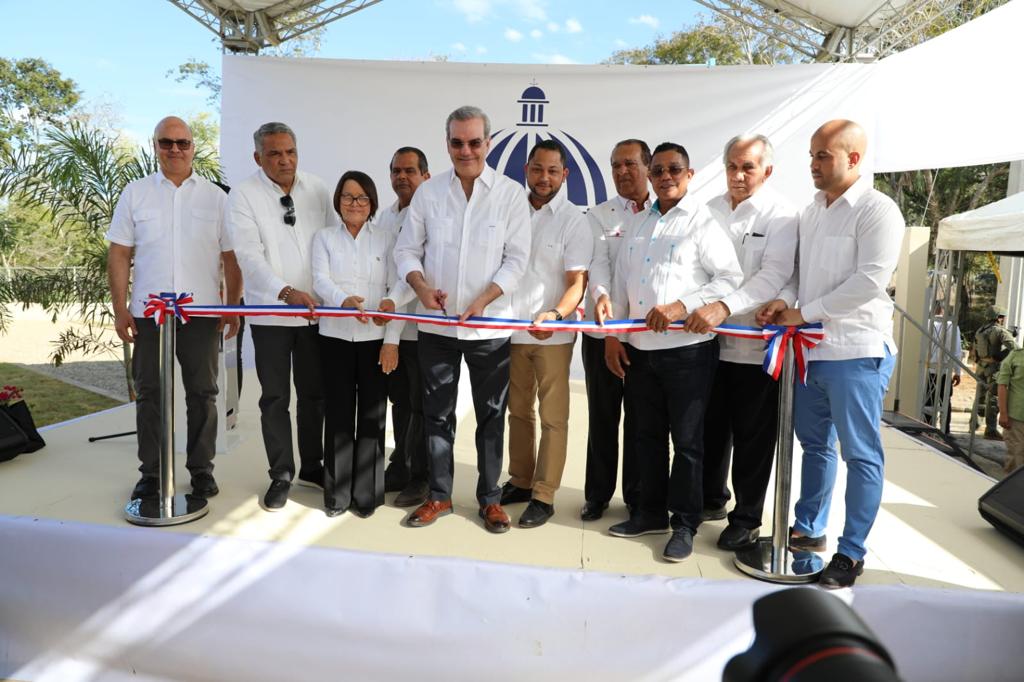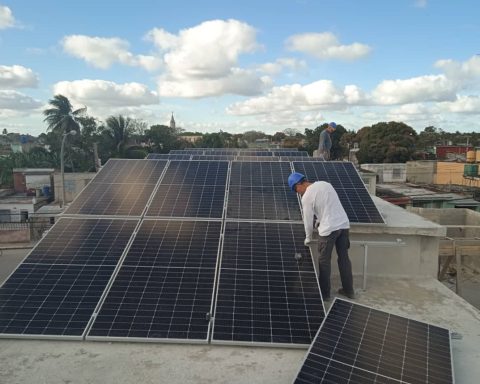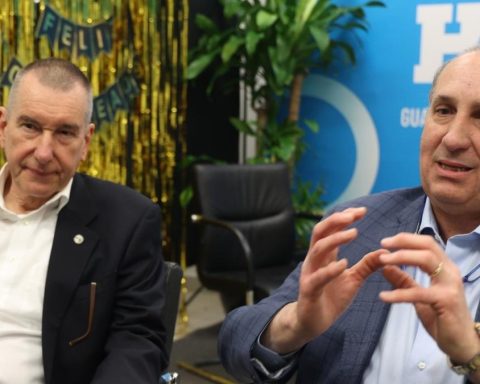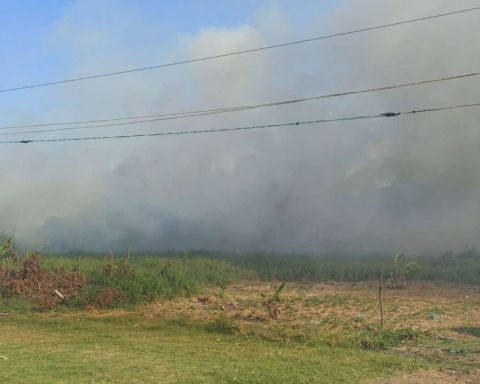Interview. The diplomat refers to the deaths in protest as “a massacre.” He affirms that the United States does not accept the government version.
After resigning from the Peruvian embassy in USA after the coup d’état Peter Castillo, oswaldo rivero is moving to North Carolina to work on geopolitical analysis with a think tank. In an interview with La República, the diplomat expressed his concern about the future of the Government of Dina Boluarte, relapsed into the accumulation of deaths due to the context of social protest and the impossibility of advancing elections without his resignation. Since he put on the sash, who once proclaimed and is now unaware of the Marxist-Leninist ideology of Free Peru, More than half a hundred Peruvians perished.
—It is true that the Government has allowed the visit of the IACHR, the United Nations High Commissioner for Human Rights and the OAS High-Level Mission, but it is also true that perhaps some actions of the Foreign Ministry are being reactive. The current vice chancellor, Ignacio Higueras, informed the heads of the embassies, general consulates and permanent representations of Peru that they are not adequately communicating the situation in the country. It is alleged that there is a foreign narrative that misrepresents the events that are occurring.
—It is punitive and authoritarian behavior to believe that the ambassadors of Peru have to say what they think (…). (The Government) cannot build anything after the people have protested massively throughout Peru. They cannot cover this reality with a finger and start saying that there are a series of terrorists (…). They do not understand that the big American and European newspapers have sent people to Peru. (…) They want to create a narrative that is not accepted in Europe or the United States, because the US has not only had journalists here, but (…) agents; so, (…) it is a reaction (of) childish tantrum that really does not make sense (…).
The US undoubtedly knows what it wants and is convinced that in Peru there has been an excessive use of force (…) that has caused almost 30 deaths, or how many are there so far?
“More than half a hundred.
—In human rights doctrine, that is called a massacre. The number of deaths there is enormous compared to that of Brazil where, for example, 1,500 prisoners have fallen in the attempt to take over the Executive Palace when Lula da Silva had already taken office. That makes a democratic country. An undemocratic country, like Peru, shoots against its citizens. That is why many ambassadors did not think that we were defending something democratic (…).
—Peru, according to the definition of Political Science, is not living in a representative democracy, but in an authoritarian regime.
—Peru has what is called a legal presidency, in accordance with the Constitution, but how (…) this president carries out her actions, trying to punish the ambassadors by saying things that they cannot say, well… In addition, the great powers They have ambassadors in Lima. She’s not going to tell them things.
The most difficult thing this regime has today, from an international point of view, is the dead. A regime that kills dead (sic) is a failed democracy. No democracy kills its dead (sic).
Although Mrs. Boluarte is legally president of Peru, from the point of view of her actions and her politics, she is losing legitimacy.
—In your opinion, does Dina Boluarte even contemplate the possibility of what will come next, that is, the Inter-American Courts of Human Rights, the supranational platforms that are going to condemn her, possibly?
—I have said it many times, that those killed by human rights violations never die because their families (…) will defend them, as happened with Fujimori, and they will ally themselves with what you say: the NGOs, the European powers and the States United, promoting human rights worldwide. An alliance is going to be formed —and it is not the first time— between these three elements before a legal president, but who has lost legitimacy by shooting her people and has turned Peru into a failed democracy.
This government has two problems: it cannot achieve early elections and (…) the deaths; but that of the dead is more serious. The fact that the elections are brought forward does not affect the great powers that defend human rights. This is ours. But the dead do not die. This government has not realized that, Foreign Minister Ana Gervasi herself does not realize that this is the most difficult thing to convince. Why did they kill people?
The Secretary General of the United Nations has come out and said that he is disturbed by what is happening in Peru and immediately requests that (…) a fully international investigation be initiated, because they no longer trust the participation of countries that promote human rights .
—Now, it is also an authoritarian trait that, for example, on Wednesday, January 25, according to information from Hildebrandt in his thirteen, the Peruvian consul in Paris sent the French authorities three documents plus a video of the chancellor in the which explains that behind the protests there are violent actions by certain groups to subvert the constitutional order. Dina Boluarte has decided to transfer the national narrative that she exposes in her messages to the Nation and has ordered that the representatives of Peru spread this disinformation from the Government to international agencies.
That’s why they fail. The day before yesterday, 20 congressmen from the United States Democratic Party sent a letter to Joe Biden telling him that human rights are being grotesquely violated in Peru and asking him to suspend all international aid. So they don’t believe them. They have information. The Foreign Ministry makes a fool of itself, because Miss Gervasi flew here, to Washington, to talk to everyone and, at that moment, they launched the letter from the Democrats.
It has not been proven that there are foreign agents. It has not been proven that there are truly exquisite terrorist groups that are strategically planning how to stop Peru. No no.
—Precisely, after all these facts of international discredit, the president last Wednesday proposed another constitutional reform bill so that the elections could be held this year. I ask him about the presumed push that could come from the diplomatic side. Could the international desolation lead Dina Boluarte to resign?
—I believe that it is the only way out after what Congress is doing —the filing of four PLs that sought to speed up the elections. I also think that she is afraid of being prosecuted. The truth is that, if Boluarte does not do so —as the Secretary General of the United Nations has requested, an international, transparent investigation that identifies those guilty of the massacre—, he will totally lose the little legitimacy he has.
—And the last thing that remains is that legal framework in which she assumed the position of president.
“That’s the redoubt.” (…) It is losing its legitimacy to the point that it is only legal, but it is not legitimate.
—There are no indications that Boluarte urges a neat and international investigation because there is a difference in the enunciation to which she refers, for example, to these alleged instigators.
“If so, let them study it.” Let them start the international investigation if there is that.
—Sure, but the difference in semantics would be that, for example, when they ask her about the hypothetical responsible for the Armed Forces, she says that we have to wait for the investigations, but when it comes to the protesters, she raises the assumption and they persist. narratives that are not proven.
—There are deals by President Boluarte and this government with which people are practically shocked. There are zero deaths in the important neighborhoods of Lima and almost half a hundred elsewhere. This shows, more than ever, that the protest is fair. The country is so divided between the wealthy and the great masses, that (…) if they protest, they shoot you. That has hit a lot outside.
—What are the dangers that Peru would run in its diplomatic relations after the Boluarte government? It is not the same for a government to be in transition like the one that Paniagua could do.
No, there is no comparison. What I believe is that if she does the international investigation and stops being punitive in the Foreign Ministry, she may possibly save her presidency. But if she continues to stay like this…
—So, we could say that the international push would end up making Boluarte…
“Investigate or leave.”
